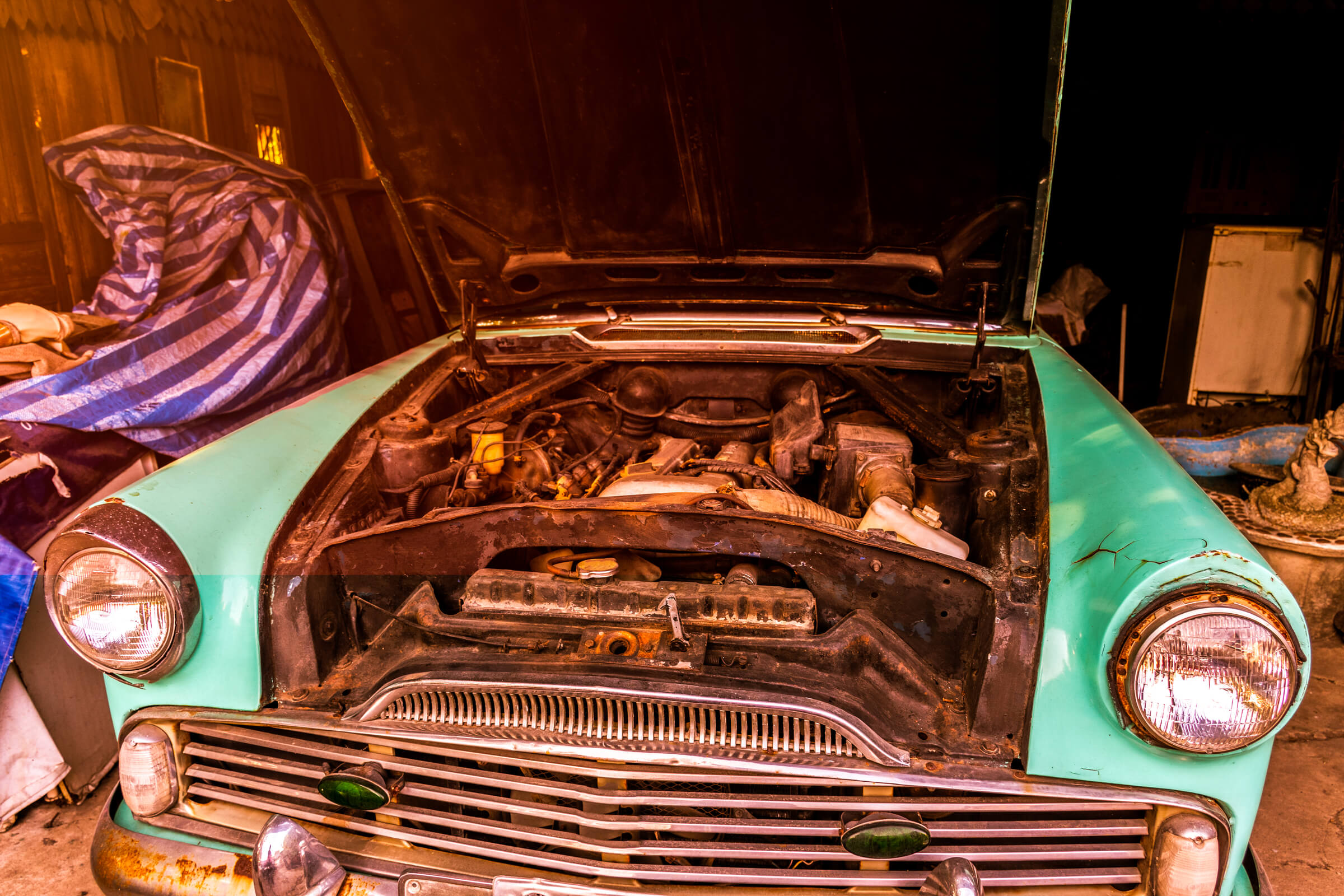
How Insurance Handles Salvage Titles, Rebuilt Cars, and Kit Cars

by Erin Anderson
Buying a car with a salvage or rebuilt title — or building a kit car from the ground up — can be an affordable (and exciting) way to get a unique ride. But when it comes time to insure it, things can get… complicated.
These types of vehicles don't fit neatly into most insurers' boxes. Some companies won't cover them at all. Others offer limited protection. And the process of getting the right policy often takes more work than insuring a standard car.
Here's what you need to know if you're considering a salvage title, rebuilt vehicle, or kit car — and want to keep your investment protected.
Salvage vs. Rebuilt vs. Kit Car — What's the Difference?
Before we dive into insurance, let's clarify what we're talking about:
Salvage Title:
A vehicle declared a total loss by an insurer (due to damage, theft, or flood), but not yet repaired. Usually not legal to drive — and not insurable for road use.
Rebuilt (or Reconstructed) Title:
A salvage vehicle that's been repaired and passed state inspection. Legal to drive — but often comes with insurance caveats.
Kit Car:
A car assembled from a kit or custom components, not manufactured by a traditional automaker. Often registered as "specially constructed" or "assembled" vehicles.
Each of these categories comes with different challenges — and expectations — when it comes to getting insured.
Salvage Title Vehicles Usually Can't Be Insured
If a car still has a salvage title (meaning it hasn't been repaired or inspected), most insurers won't cover it — and in many states, you can't legally register or drive it.
However, if you're:
- Towing it to a shop
- Storing it during a rebuild
- Using it for parts
…you may be able to get storage-only coverage, or insure just the garage or tools under a homeowners or business policy.
Once it's rebuilt and passes inspection, that's when standard insurance options open back up — but not always easily.
Rebuilt Titles = Limited Coverage (and Extra Steps)
If you've restored a salvage vehicle and it now has a rebuilt or reconstructed title, you can usually get insured — but not always right away, and not with every provider.
Here's what to expect:
- Fewer insurance options: Some major carriers won't cover rebuilt vehicles at all.
- Extra documentation: Insurers may require photos, repair receipts, and proof of inspection.
- Limited coverage: Some policies won't offer full collision or comprehensive for rebuilt cars.
- Lower payouts: Even with full coverage, your car's value may be discounted because of its history.
Tip: Before you buy or rebuild a salvage vehicle, call your insurer first to ask what they require and whether they'll insure it when you're done.
Kit Cars Can Be Insured — But It's Not Always Simple
If you're building a kit car (or considering buying one), you're probably putting in a lot of time, money, and custom parts. That means getting insurance that protects your actual investment — not just a vague market value — is key.
Here's how to make it work:
- Use a specialty insurer: Companies like Hagerty, Grundy, or American Collectors Insurance often provide policies for kit cars, customs, and replicas.
- Document everything: Build records, parts receipts, appraisals, and photos will help prove the car's value.
- Ask for agreed value coverage: This lets you and the insurer agree on the car's worth upfront — instead of relying on book value (which may not exist for your car).
- Check registration requirements: Your state may have unique rules for titling, inspecting, and insuring specially constructed vehicles.
Some standard insurers will cover kit cars — but most don't know how to value them properly. A specialty provider is often the better bet.
What About Liability-Only Coverage?
If your main concern is just being road-legal, liability-only coverage may be available — even for salvage or rebuilt cars.
But be cautious:
- You won't be covered for damage to your own car.
- If you're driving something with a shaky repair history, it may not be worth the risk.
- If it's a high-value kit or restoration, this leaves your investment completely unprotected.
The Bottom Line
Salvage title cars, rebuilt vehicles, and kit cars all come with extra insurance hurdles — but they're not impossible to insure. The key is knowing where to look, what paperwork to keep, and which type of coverage fits your situation.
Before you buy or build, take time to talk with an insurer who understands these kinds of vehicles. The right policy will not only keep you legal — it'll help protect everything you've put into your car, from the first wrench turn to the final coat of paint.